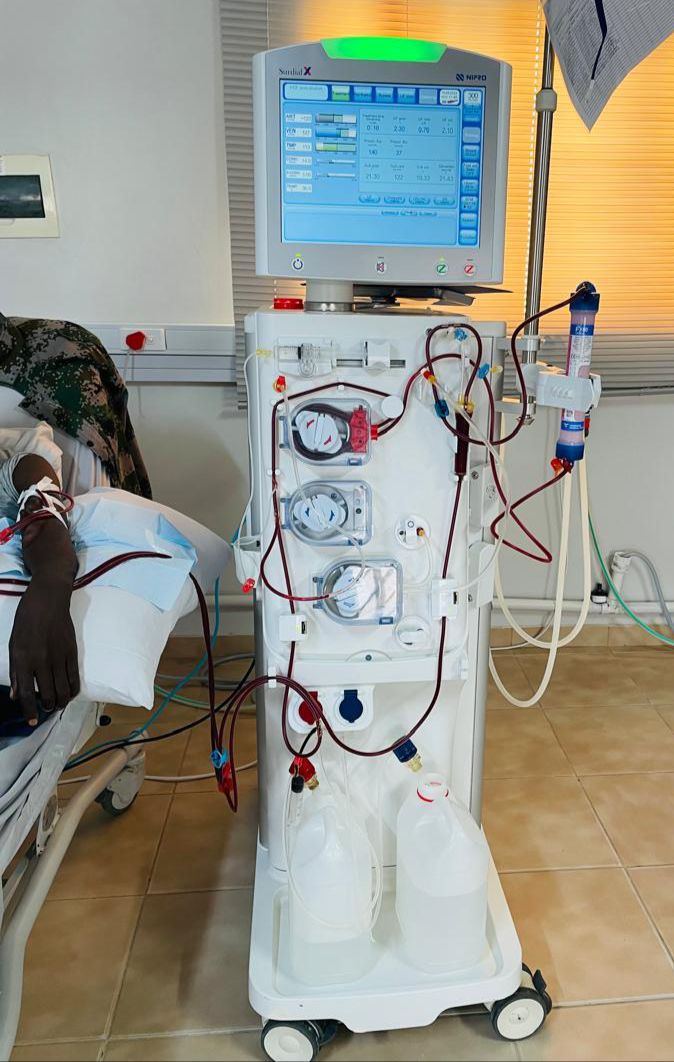Battling a kidney disease is harrowing, and conforming and keeping up with the recommended diet is challenging to many who do not have the financial means.
Kidney dialysis patient Simon Halweendo (42) said it is tough keeping to his diet as it is expensive. He is not allowed to eat fats and food with high potassium.
Patients are also expected to limit their fluid intake, beef, ham, bacon and sausage. Hot dogs, lunch meats, chicken tenders or nuggets, or regular canned soup are additional food types that patients with kidney failure must avoid.
“Unfortunately, in terms of dietary needs, it is a losing battle that I am fighting because there is nothing I can do apart from eating what is there, I cannot choose what to eat,” said the father of four from Onanduli village, 21km from Eenhana.
Halweendo told New Era he was diagnosed with kidney failure in September 2015. He said apart from the required dietary needs, he severely suffered with getting the right treatment due to limited kidney dialysis units in his surrounding area.
The soft-spoken Halweendo was admitted to a hospital in Oshakati and a year later, he was discharged to seek dialysis treatment in Ongwediva – all the centres are far from where he lives.
“I used to travel for more than 100km from Onanduli to Oshakati to receive my dialysis treatment. This was three times a week and it was challenging for me as I would reach home late and exhausted,” he said while receiving his weekly treatment at the Atlantic Dialysis Centre.
Established by two young dialysis specialists Karen Andima and Gretta Immanuel, Atlantic Dialysis opened its first branch in Gobabis in April 2023.
This is after the duo noticed that several patients would travel from Gobabis to Windhoek for dialysis treatments.
The centre later branched out and opened another branch in Eenhana in December 2023, catering to both private and State patients.
Andima was gravely concerned that apart from the challenges they encounter with patients, some are not well counselled by the doctors who diagnose them.
“We find or come across patients who have no idea or thorough information about their conditions. I believe doctors who diagnosed patients with kidney renal disease should arrange adequate counselling sessions so that the patients acquaint themselves with the disease,” stated the disappointed health professional.
She said she has encountered patients who refuse to go on treatment due to denial, which to some extent also culminates from lack of information.
Andima said the disease strings along many issues like mental health and job losses, if not addressed properly.
“On average, we put every patient on the dialysis machine three times a week. A session is four hours long. Imagine if a person misses those hours from work, the chances of them losing their job is high because they became liabilities to the employers and are ultimately let go,” she adly stated, adding that this leads to mental breakdowns of patients, especially if they are breadwinners.
“Your kidneys filter waste and excess fluid from your body, which are excreted in your urine. When your kidneys lose their filtering abilities, dangerous levels of fluids, electrolytes and wastes can build up in your body. With end stage renal disease, you need dialysis or a kidney transplant to stay alive,” Andima said.
Speaking from the Cattle Country telephonically, kidney specialist Immanuel from the Gobabis Centre told New Era that dialysis is a procedure done to remove waste products and excess fluid from the blood when the kidneys stop working properly.
“This treatment is done using a haemodialysis machine for patients with end stage renal diseaselike Mr Halweendo. It is done two to three times per week, with three to four hours of treatment time – depending on your doctor’s prescription. This treatment can be done at a kidney dialysis centre or in the hospital,” she stated.
Immanuel also noted that symptoms of chronic kidney disease include among others, fatigue and weakness, loss of appetite and shortness of breath if fluid builds up in the lungs.
“Sleeping problems, restless legs, swelling of feet and ankles or puffy face, headaches, oliguria (urinary related), chest pain, if fluid builds up around the lining of the heart and hypertension are symptoms that people should look out for,” she pleaded.
She advised Namibians to make appointments with healthcare providers if they have symptoms of kidney disease as “urine and blood tests will be done to determine the condition of your kidneys”.
-psiririka@nepc.com.na



